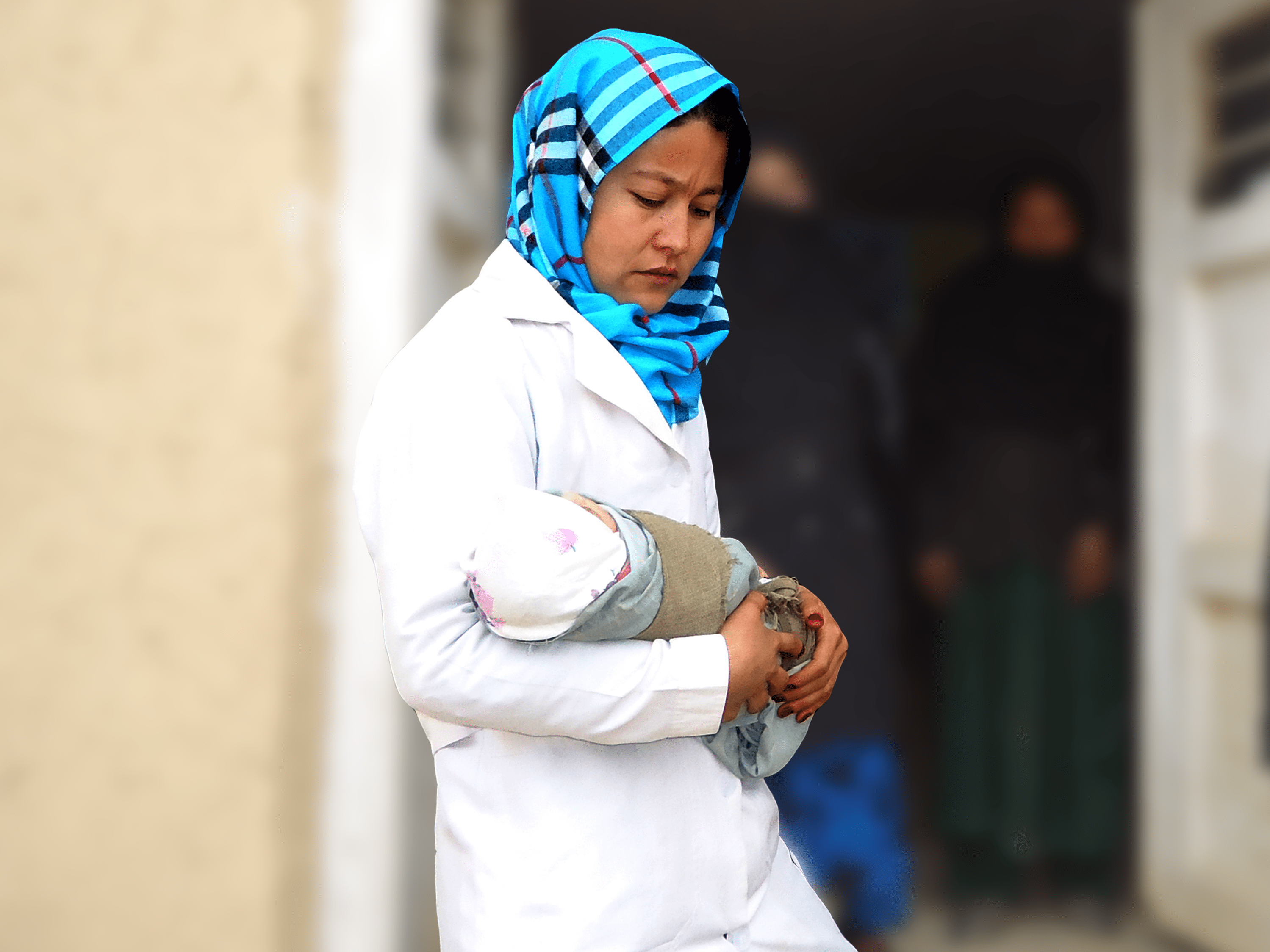It was midnight in the remote Afghanistan village of Balakoh. Thirty seven year old Zainab was in her tenth hour of labour. With every passing hour the agony increased, until at last her worried family decided to take her to the nearest Family Health House (FHH) located in Qaramat village. With the help of relatives, Zainab’s family fashioned a stretcher from a wooden bed and hoisted it onto their shoulders for the 11 hour walk to Qaramat.
Balakoh literally means ‘upper mountainside’, and it is located in Sangtakht district, meaning ‘stone bed’. The names are evocative of the difficult terrain that Zainab’s family would have to traverse to access lifesaving treatment for Zainab.
Ten years ago, Daikundi province, where Balakoh is located, had among the highest maternal and neonatal mortality rates in the Central Highland region of Afghanistan. In remote areas such as Balakoh, one newborn died in every 17 births and a woman died in every 108 deliveries due to complications during pregnancy, labour, delivery or postpartum. The Qaramat FHH is one of 115 community-based health facilities piloted by the United Nations Population Fund (UNFPA) which provide people living in so-called ‘white areas’ (those unserved by any health facilities) in the provinces of Bamyan, Daikundi, Herat and Faryab with access to reproductive, maternal, newborn and child health care. A trained midwife who has been recruited locally is stationed at each FHH and serves about 1,500–4,000 people living within a two hour walk. In Daikundi province, not all white areas have as yet been covered by FHHs.
“When Zainab arrived, I examined her to find that this was a quadruplet pregnancy!” recalls Safia, the community midwife posted at the FHH. “At first I was very nervous. It was time for the babies to be born.”
Although Zainab had been pregnant six times before, this was a new and hazardous situation. The babies were not all properly positioned for birth: while two were safely positioned head-first, one was in breech and the fourth was shoulder-first. Zainab herself was anaemic and severely malnourished, and was in extreme pain.
“I did what was necessary to help her and finally the uterine contractions began,” says Safia. “It took an hour but, finally, all four babies were born healthy. I was so relieved.”
Dr Nazifa Hamrah, head of the Obstetric Fistula ward at the Malalai Maternity Hospital, Kabul, is impressed by Safia’s phenomenal work in managing such a complicated case in a remote village health centre. “I am very surprised by her talent; such cases even make the best of us nervous, but I see that Safia has been successful in managing the case and helping the babies come into this world. This is just brilliant,” says Dr Nazifa.
Safia herself was both relieved and proud. “I could see appreciation in the eyes of the mother I helped,” she says. “She said that I helped give her a new life and helped her have her babies alive. She paid me a visit few days after the delivery to thank me again.”
In Afghanistan, access to maternal health services is a challenge, not only because of cultural barriers in the way of women accessing health facilities, but also because of the sheer lack of adequate health facilities.
Since 2009, UNFPA Afghanistan has trained community midwives such as Safia to improve maternal and neonatal health in remote areas of Afghanistan which do not have access to health facilities. Community midwives not only help reduce preventable deaths by providing essential care to mothers and newborns, they push the boundaries of cultural norms, acting as role models. Through inspiring stories such as Safia’s, girls across these provinces are beginning to realize how, with education and training, they too can make vital contributions to their communities.


